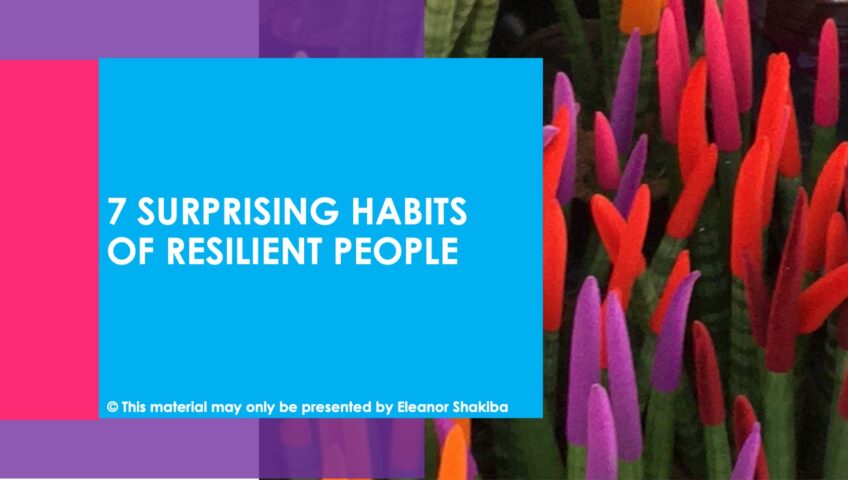Are you struggling to grow in your personal or professional life? If so, looking at the habits of highly resilient people may help. Failing to achieve success often comes down to your way of thinking. A recent article helped dispel several common myths about resiliency, including the idea that your past is impossible to escape.
Past failures and traumas don’t need to hold you back. As discussed in a recent article on resilience written by Silvia Rockwell, anyone can become more resilient. This is also an important point in positive psychology. You have the power to alter your way of thinking. However, along with getting in the way of your own resiliency, your thoughts and actions may impact the resiliency of others.
First, it’s important to address some of the myths surrounding resiliency. For example, you may think that some people are beyond hope or that you can’t change. Silvia Rockwell identifies four common myths that get in the way of fostering resilience in children, students, and peers.
Rockwell mentions the myth of irreparable damage. This is the idea that some people are just too broken. The truth is that no one is entirely lost. People are adaptable, no matter their past experiences.
Rockwell also dispels the myth of predetermination. Some people believe that children are predetermined to repeat the mistakes of their caregivers. No one is predetermined for a specific outcome. You have control over your life’s path and the decisions that you make.
The myth of identity is also explored in the article. This is the idea that people are defined by their past. An abused child is defined by the abuse. Your past is what happened to you. It’s not who you are today.
The combination of myths discussed lead to the fourth myth, which is that nothing matters. People become discouraged and stop believing that their efforts matter. The truth is that everyone deserves hope. You can read more about the myths that prevent fostering resilience here.
So, how can you become more resilient? Resilient people build their mental stamina by accepting help. They also surround themselves with supportive people. It’s also important to stop blaming yourself for things you can’t control. Make peace with the past. Resilient people also pay attention to their physical health. You need adequate sleep and rest, but also need to keep yourself active. Resiliency also requires you to embrace change and learn to adapt, which is where NLP can help.
NLP reframing and anchoring can both help you increase your adaptability and resilience. Reframing allows you to view events from a different frame or perspective. It helps you identify thoughts and the behaviours you want to change. NLP anchors help you change your thoughts and behaviours. You learn to create anchors or memories that help you recognise and control your emotions.
Fostering resiliency in others requires you to address your own mental stamina. Stop believing the myths of irreparable damage, predetermination, and inescapable labels. NLP can help you break the patterns keeping you from flourishing. I’d love to help. View my one-to-one coaching services and online courses at https://thinklearnsucceed.com.au/
